Search Results for Tag: Exxon
Deciding Arctic future in Fairbanks and Bonn
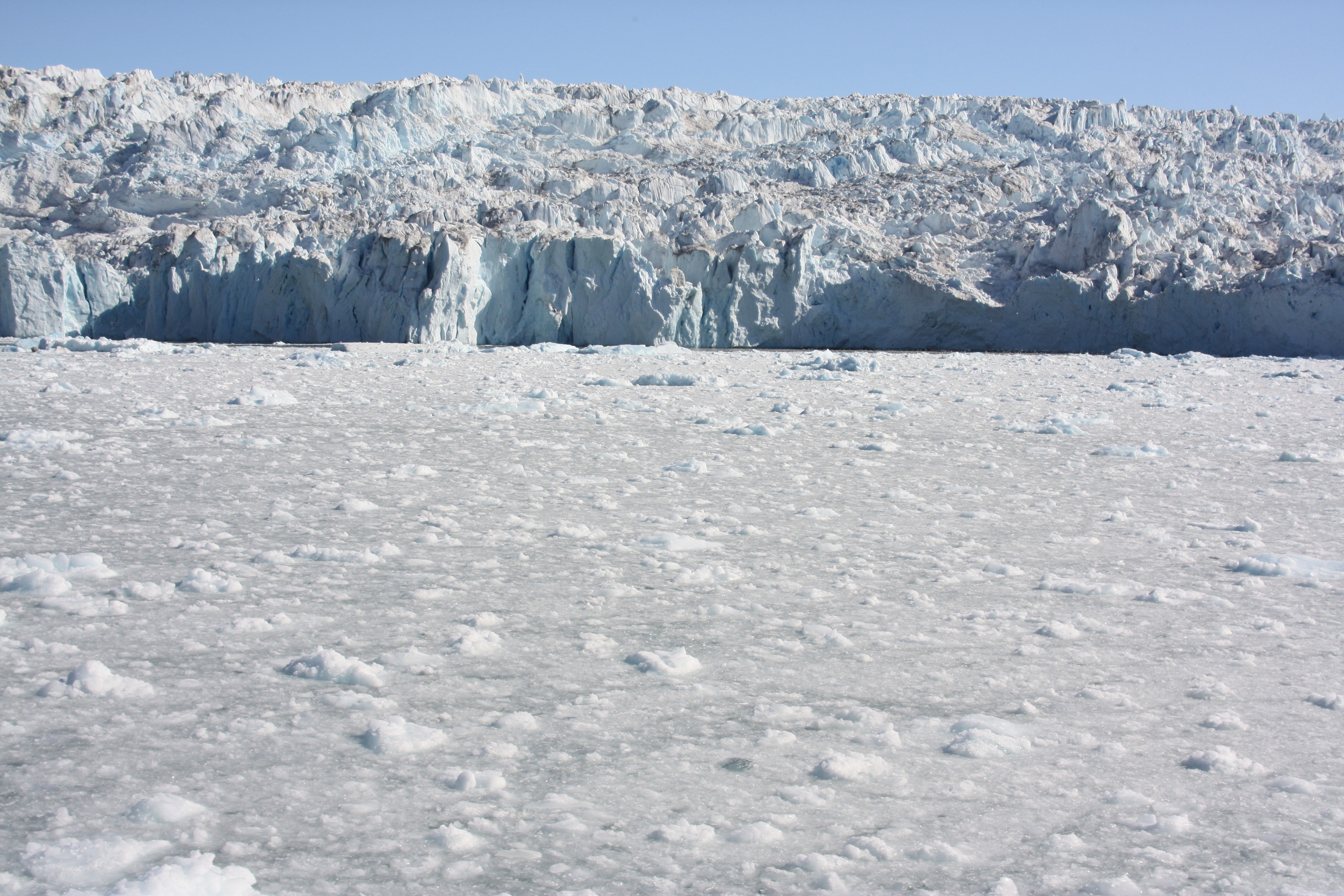
Can summits and negotiations halt Arctic melt?. (Pic: I.Quaile, Greenland)
It is hard to tell where the most influential conversations on the future of the Arctic are being held right now. Fairbanks would be the one where “Arctic” features most directly, at the summit of the Arctic Council. But the UN climate talks are also happening here in Bonn at the moment, and what was originally planned to be a fairly technical working meeting on implementing the Paris Agreement has been overshadowed by the question of whether the world’s second-biggest greenhouse gas emitter the USA might leave that Agreement, as threatened by President Trump.
The US climate question-mark
Either way, on both stages, the USA is at the centre of things. The election of Donald Trump and the establishing of an administration set on dismantling environmental protection and climate legislation has increased the size of the question mark hanging over the Paris goal of limiting global temperature rise to the two degrees – or rather 1.5 degrees – experts consider the absolute maximum to avoid dramatic feedback effects and potentially catastrophic climate change. And as far as the Arctic is concerned, even that would be too high. The icy north is already melting rapidly.
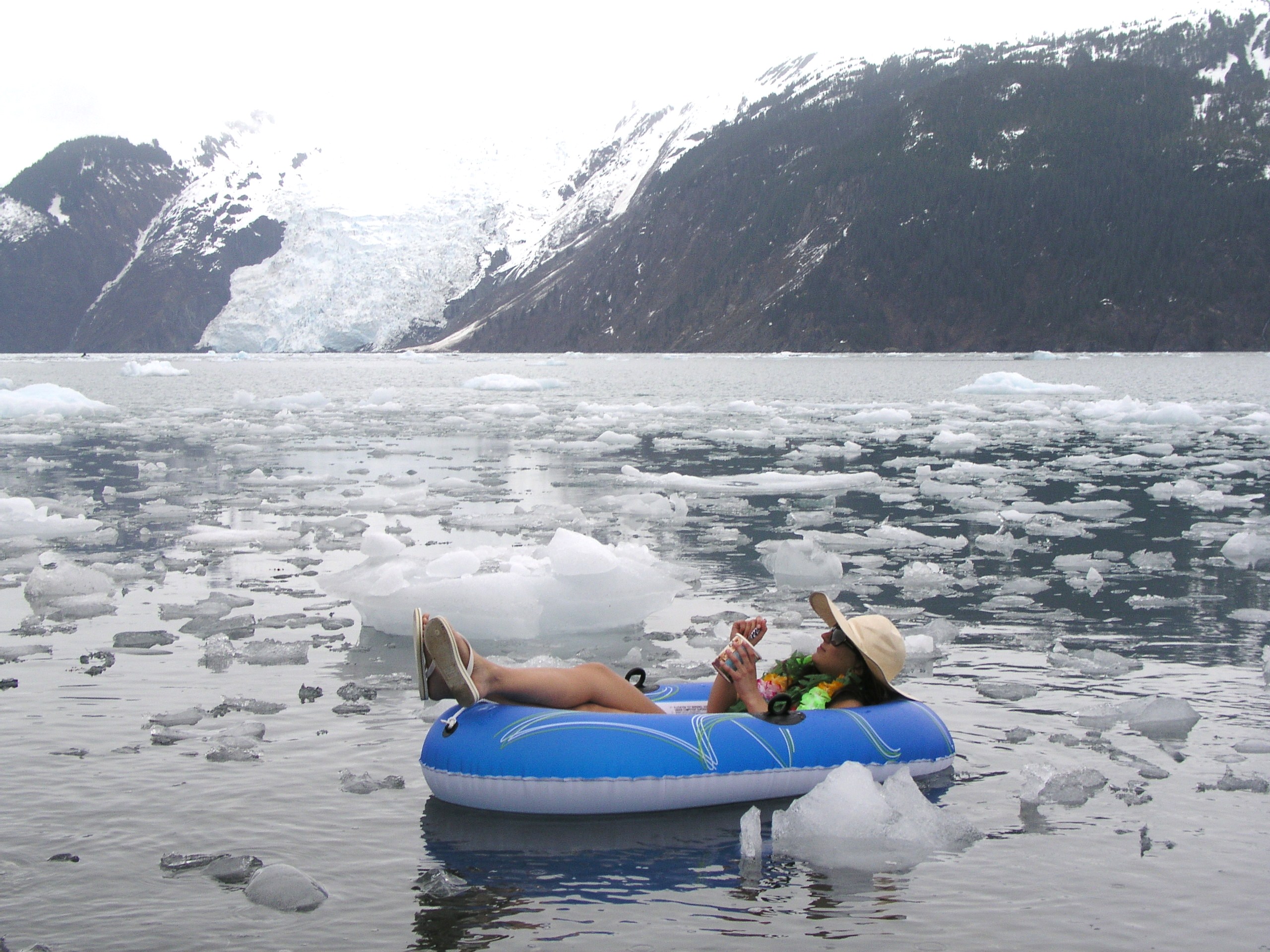
Soon no longer just fiction? (I.Quaile, Alaska)
When the talks started in Bonn on Monday, a preparatory meeting for this year’s climate mega-event, also to be held here this November at the headquarters of the UNFCCC, people were anxiously awaiting a meeting that was still scheduled to take place in the USA on Tuesday, when the President was to make the decision on the Paris Agreement. It has since been postponed. The fact that it has been rescheduled until after the G7 meeting later this month, which will be attended by President Trump, supports the view that there is more to this than just a collision of appointments. Paula Caballero, the Global Director of the Climate Program at the World Resources Institute WRI, is in Bonn for the talks, and she told me in an interview the US Cabinet is divided on this issue and President Trump still has to make up his mind. She is hopeful that good (business) sense will prevail and President Trump will be influenced by those – in his immediate surroundings and on the international stage – who point out it makes sense from all points of view to stay in that Agreement and promote the shift to renewable energies and emissions reductions. Will the G7 meeting convince Trump to stay in the Paris Agreement?
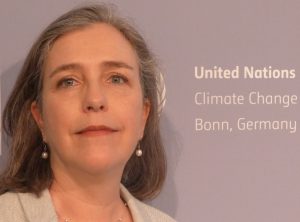
Caballero says it’s in everybody’s interests for the US to stick with Paris. (Pic. I.Quaile, Bonn)
Energy revolution from the bottom up?
You can read that interview, in which Ms Caballero outlines the ins- and outs of the US-Paris Agreement decision and stresses why it is in everybody’s interests for the US to stay in – on the DW website, or listen to it in the latest edition of Living Planet. One thing that is clear is that the momentum of the shift to renewable energies is picking up across the globe, regardless of the attempted rollback in the USA.
On Living Planet I also talk to two women in the programme who are pushing ahead with climate protection at the city level. Laura Kavanaugh and Maryke Van Staden work with ICLEI, a worldwide alliance of “local governments for sustainability”, which held a “Resilient Cities” forum, also here in Bonn, last week. Their message is quite clear. Cities around the globe are already feeling the impact of climate change now. Urgent action is required. The same is true of the Arctic, which is being hit so much harder and faster than the rest of the planet by climate warming.
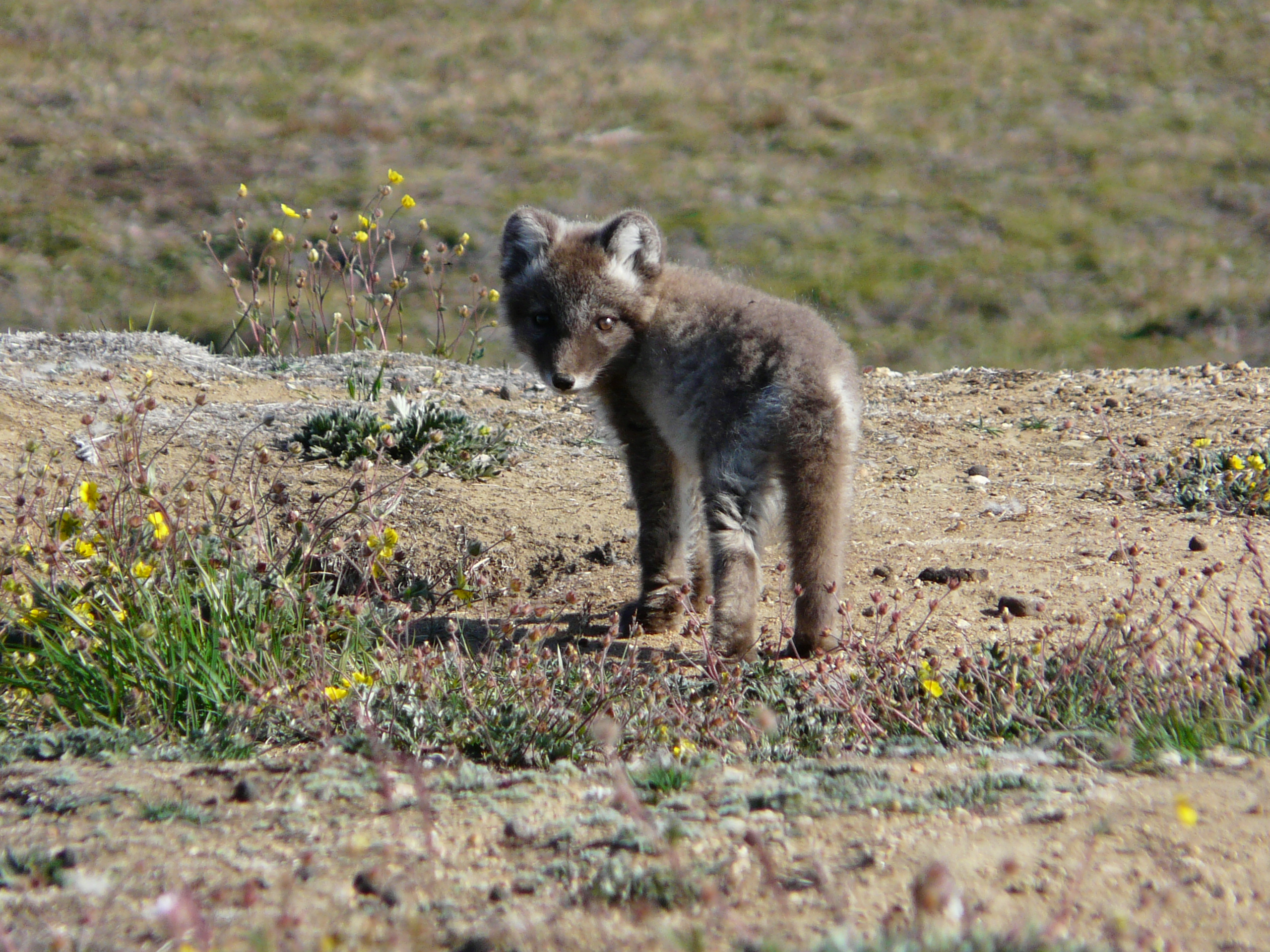
Will the Arctic fox survive in a warming climate? (Pic. I.Quaile, Greenland)
Ulterior motives
Clearly, progress to halt global warming is key to preserving the Arctic ice. That makes it all the more interesting that the Arctic Council summit in Fairbanks is being hosted by none other than the “new” US Secretary of State Rex Tillerson, as the USA has held the rotating Chairmanship of the Council for the last two years. Given that Tillerson is former CEO of the fossil fuels giant EXXON Mobil, there will be a keen interest in anything he says on or off the record, with regard to climate change and the prospect of future oil and gas drilling in the Arctic. Given that he is the first Republican Secretary of State to attend an Arctic Council summit, unsurprisingly there is much speculation about whether this indicates an increased US interest in the Arctic – and with what motives. Joel Plouffe has some interesting insights on that aspect.
The Trump administration is keen to boost Arctic drilling, hoping to benefit from easier access thanks to Arctic warming and decreasing sea ice cover. It is to be feared that this is the main reason for the upsurge in US interest in the region. The same applies to Russia.
The thing is, Lavrov didn't have to be there. The other #Arctic FMs weren't there. Just him, watching Tillerson's 2 min welcoming remarks. ? https://t.co/qeEdLGTWRg
— Heather Exner-Pirot (@ExnerPirot) May 11, 2017
Heather Exner-Poirot notes with interest that Russian foreign minister Sergei Lavrov was the only one of the Arctic foreign ministers to hear Tillerson’s speech at the reception in Fairbanks on Wednesday evening.
Cooperation – on climate science?
Finland will take over the helm of the Arctic organization at the end of today’s meeting. Finland has said it aims to protect the Arctic during its chairmanship by adhering to the Paris Agreement. Good luck Finland. You have an interesting couple of years ahead of you.
The theme of the US Chairmanship has been “One Arctic: Shared Opportunities, Challenges and Responsibilities”. The Council says this was reflected in much of the work completed by its six Working Groups and Task Forces over the last two years.
One key issue in focus is science. The “Agreement on Enhancing International Arctic Scientific Cooperation” is up for approval and signature in Fairbanks.
Since taking office, the Trump administration has taken drastic measures to cut budgets for climate science and environment protection. Not without reason did scientists takes to the streets around the world in protest. So there was a considerable feeling of relief when David Balton, the State Department’s assistant secretary for oceans and international environmental and scientific affairs and chair of the Senior Arctic Officials over the past two years announced on Monday that the US remained commited to Arctic climate change research.
“The US will remain engaged in the work the Arctic Council does on climate change throughout,” he told reporters.
“I am very confident there will be no change in that regard”.
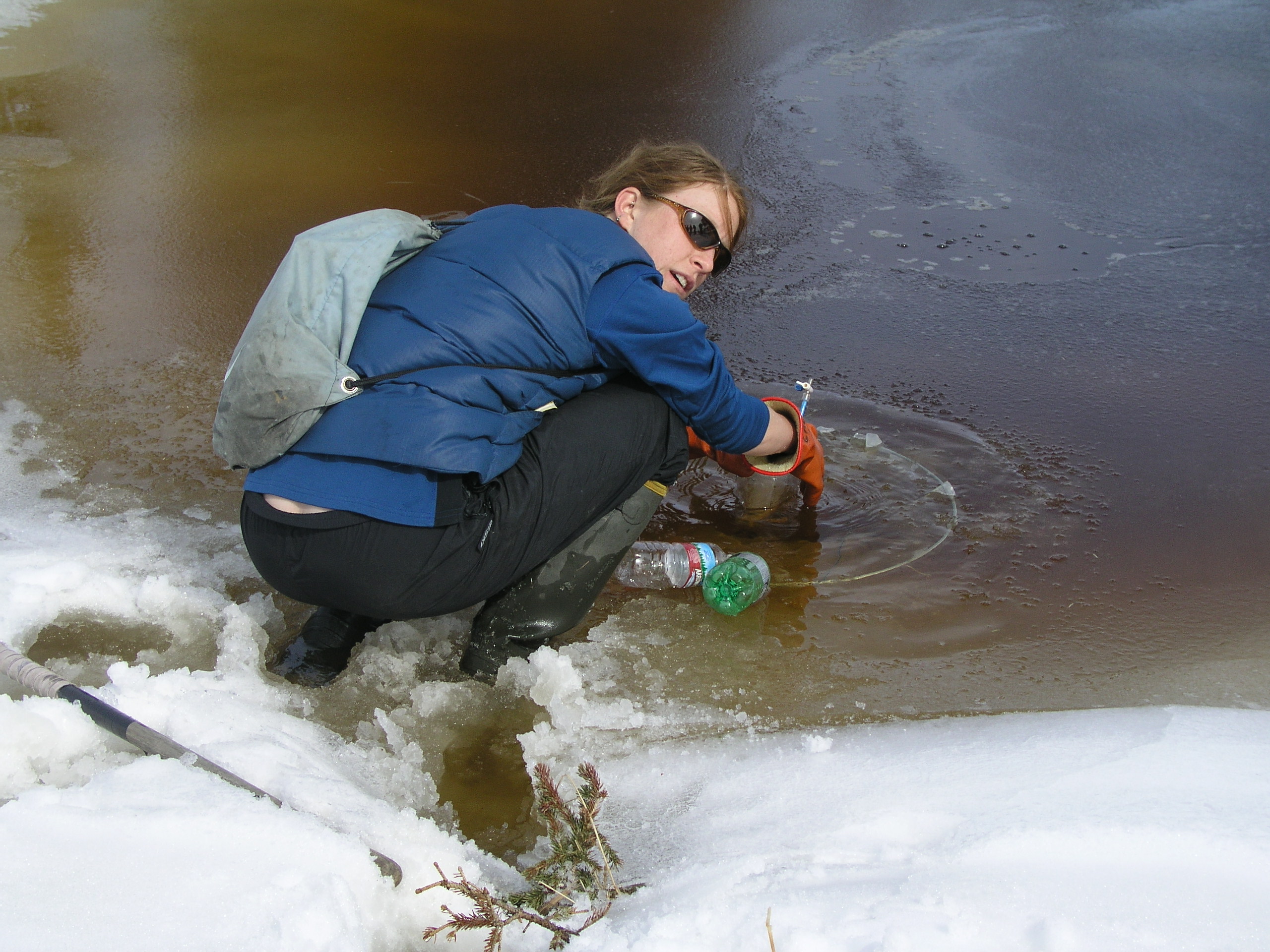
Scientific research is key. Collecting methane from melting lake in Alaska (Pic. I.Quaile)
To drill or not to drill…
It remains to be seen exactly what that will involve. It is hard to understand how Trump’s considering pulling the US out of the Paris Agreement can be reconciled with any commitment to protecting the Arctic from climate warming. It seems more likely that he is keen to benefit from the effects of climate change making the Arctic more accessible for commercial development. After all, scientific research in the Arctic can take many forms.
On April 27, the President signed an executive order aimed at rolling back restrictions on offshore drilling, including offshore Alaska. Barack Obama had issued orders closing off areas of the Arctic and Atlantic oceans to oil and gas drilling.
In the meantime, ten environmental and Alaska Native groups are suing the federal government over Trump’s new order. The groups are led by the League of Conservation Voters, Natural Resources Defense Council and Earthjustice. They say the order exceeded Trump’s authority under federal law.
In ADN, on May 3 Erica Martinson quotes Niel Lawrence, NRDC senior attorney:
“These areas have been permanently protected from the dangers of oil and gas development. President Trump may wish to undo that, and declare our coasts open for business to dirty energy companies, but he simply lacks the authority to do so under the law.”
Icy battle over future energy
While the legal wrangling continues – and the number of lawsuits involving climate change is on the increase – the Arctic continues to warm at a rapid rate.
The “Snow, Water, Ice and Permafrost in the Arctic” (SWIPA) report published in April indicates that the Arctic Ocean could be largely free of sea ice in summer in just two decades, and that projections of global sea level rise are underestimated.
The signs do not bode well for the Arctic. What happens in the region depends very largely on how fast the world is able to halt global warming. With the world’s second-biggest emitter set on exploiting the impacts of global warming in the region and reversing measures to protect environment and climate, the main question is how much influence the USA will actually have, and how resilient the transition to renewable energies will be.
Claudia Kemfert, a leading climate economist, recently published a new book in German about what she sees as the fossil fuels empire “striking back”, a campaign to discredit the green energy revolution. She warns against complacency and underestimating the influence of the fossil fuels lobby.
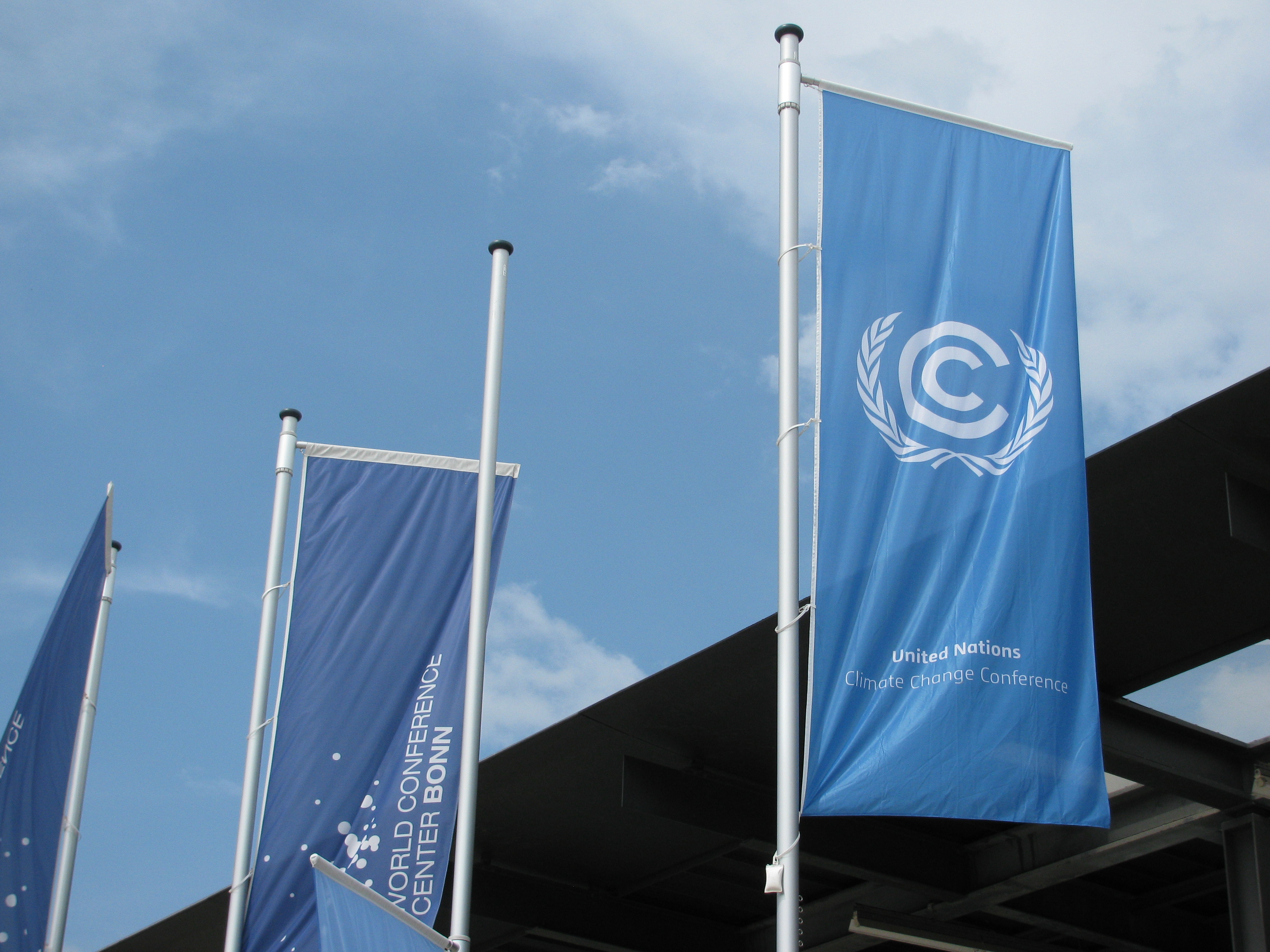
Bonn hosts the UN climate talks now and in November (Pic: I.Quaile)
At the UN talks in Bonn, the influence of those fossil fuel lobbyists on the negotiations has become a key topic of debate.
Government representatives with the common goal of achieving climate protection are not the only ones attending the talks. Alongside the environmental activists on the sidelines, lobbyists from various sectors are also there to promote their own interests. And these include industries which do not stand to profit from restrictions on emissions. All these groups are allowed to attend the international climate conferences hosted by the United Nations Framework Convention on Climate Change (UNFCCC).
Transparency needed
A recently published report from Corporate Accountability International, a United States-based nongovernmental organization, highlighted the strong power of trade and business organizations at climate-related events.
The fossil fuel industry is particularly well represented.
One group cited in the report is the National Mining Association in the US, which, the ngo notes, supports increased coal consumption and contributes to climate change.
The United States Chamber of Commerce is another regular participant. The largest lobbying group in the country – and the largest chamber of commerce in the world – is in favour of nuclear power, offshore oil production and drilling in the Arctic National Wildlife Refuge.
When it comes to the Arctic, the stakes have never been higher, politically, economically and of course environmentally.
Even the implementation of the most ambitious emissions reduction measures will not halt the increasing accessibility of the once virtually unnavigable Arctic Ocean in the near future. That guarantees that this will not be the last Arctic meeting to be attended by top-level politicians from the world’s most powerful nations. Meanwhile, the lobbyists will continue their attempts to prolong the fossil fuels era in spite of all the scientific evidence indicating the dangers it holds for the planet.
Perhaps the most important thing about Tillerson’s attendance in Fairbanks is the attention it draws to what is happening in the high north. And the UN climate process can only benefit from the transparency emerging over exactly who is advocating and influencing what in the negotiations.
Will new climate scientist on board influence Exxon?
Last year I had an interesting guest in the studio here at Deutsche Welle. We talked for a good half hour about climate change and the ocean and the need for the Paris Agreement to be put into action, and whether we can still save the Arctic ice as we have known it in our lifetimes.
Excerpts from the interview were broadcast on Living Planet and published online.
Susan Avery is an atmospheric scientist. She was President and Director of the renowned Woods Hole Oceanographic Institute from 2008 to 2015, and became a member of the scientific advisory board to UN Secretary General Ban Ki Moon in 2013. She was in Bonn for a lecture organized by Björn Müller-Bohlen from the department of strategic partnerships at the Forum of International Academic Sciences in Bonn, to explain to people here how climate change is affecting the ocean.
I was surprised to say the least when I saw that from the beginning of February Dr. Susan K. Avery had been elected to the board of directors of ExxonMobil.
Topsy-turvy world?
So the former Exxon chief Rex Tillerson has taken the key post of Secretary of State in the Trump administration, climate skeptic Scott Pruitt takes over the EPA, the world worries about the future of the climate and the environment – and a leading climate scientist has joined the “largest publicly traded international oil and gas company and one of the largest refiners and marketers of petroleum products”, as ExxonMobil describes itself. It is also at the centre of a huge controversy over claims that it denied climate change, covering up facts and funding climate skeptic bodies. Interesting times indeed. (The Dawn of the Trumpocene?) What are we to make of it all?
I emailed Dr. Avery to try to arrange another interview to discuss her motivation and expectations. She did respond swiftly, telling me she was “honored to be elected to the Board and look forward to serving in that capacity.” But interview requests are being handled by Exxon.
Reactions to her appointment have been mixed, ranging from those who see this as a mere greenwashing type of move by Exxon, and those who think this represents a gradual shift in thinking in the corporation (pragmatic shift to renewable energies given the problems ahead for fossil fuel companies?) and the optimists who think this could possibly even be a chance for a climate expert to influence the policies of the fossil fuel giant and a sign that the times are ‘a changin’.
From the “horse’s”mouth
I decided to have another look and listen to the interview I recorded with Dr. Avery last year, to remind myself and those who will be watching her actions with interest, of what she stands for when it comes to protecting the climate, the ocean and the Arctic.
She is certainly in no doubt about the human factor in climate change. When I mentioned that we humans had been “interfering” with the climate, she laughed good-naturedly at my under-statement, and went on to elaborate on how we are increasing the temperature of the atmosphere by infusing carbon into it. She clearly named fossil fuels as a cause. So what, I wonder, will she be telling the board of ExxonMobil?
Our subject was the effect of greenhouse gas emissions on the oceans in particular. She stressed that while 25 percent of the carbon dioxide we release goes into the atmosphere, a stunning 93 percent of the extra warming created is in the ocean. I went on to ask her about the impacts:
“The carbon dioxide we’ve put into the atmosphere already and the heating associated with that means that we’re already pre-destined for a certain amount of global temperature increase. Many people say we have already pre-destined at least one and a half degrees, some will say almost two degrees. That’s why it’s really important to address the warming questions. And I was really pleased to see the Paris Agreement finally signed off on.”
Fossil fuel threat to the ocean
With the future of US participation in implementing the Paris Agreement very much up in the air under the Trump administration, one wonders how Avery is going to push the decarbonisation of the economy necessary to keep anywhere near the two degree limit, on the board of one of the world’s biggest oil and petroleum concerns.
She also stressed in her talk with me the huge threat to the food chain posed by ocean acidification, as carbon dioxide emissions change the PH of the ocean.
“Our coral reef systems and a lot of our ecosystems in the ocean are having a battle with warming, and those ecosystems that involve shell production and reproduction, as in our reef systems, are also battling acidification issues. This is really critical, because it attacks a lot of the base of the food chain for a lot of these eco-systems. “
Another of the threats to the ocean and the creatures in it is pollution, and Avery told me her time as head of Woodshole was a time of “many crises in the ocean” – including the Deep Water Horizon oil spill:
“That was a real challenge for us in terms of looking at the technologies we have in a different way, solving a different type of problem, and from these crisis moments we learned a lot about our science and our technology, and how to improve it and go forward.”
Well, here’s hoping that knowledge and Dr. Avery’s expertise here will help the company where she is now on the board.
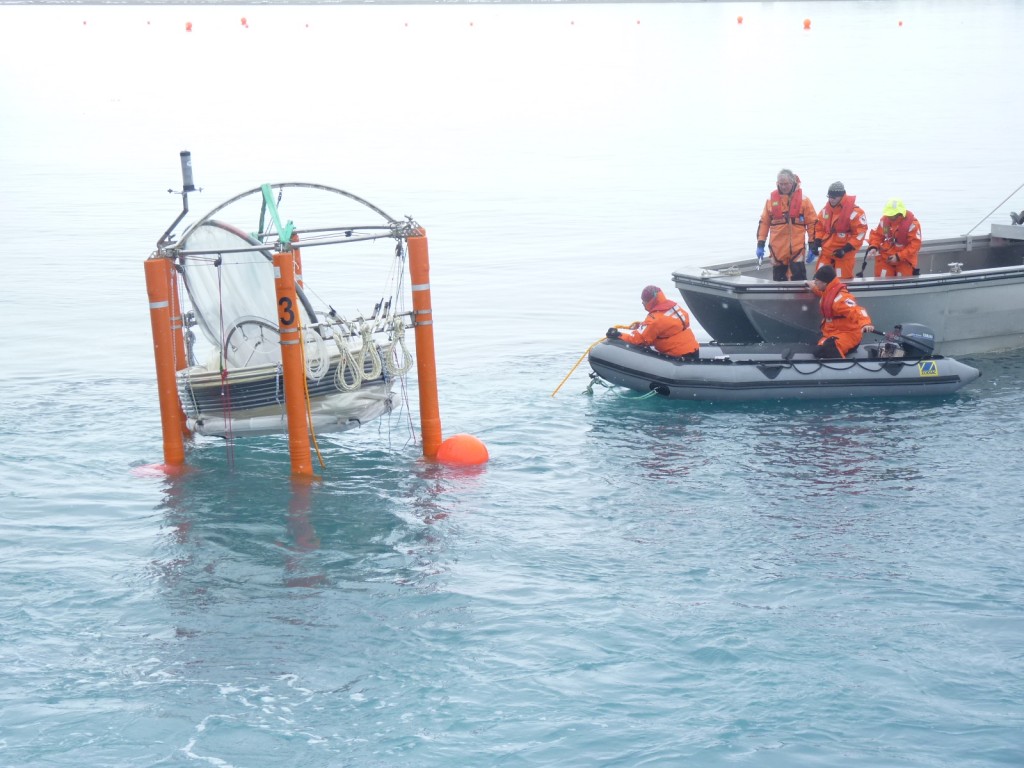
Scientists are concerned about the effects of ocean acidification. This mesocosm is monitoring in Arctic waters. (I.Quaile)
Kudos for the journos
Another point that came out of our interview was Avery’s firm belief in the key role the media have to play in explaining what is happening to our climate and environment to “ordinary people”.
“It is things like Living Planet and others that really begin to educate people and involve people in understanding their environment and their planet,” she said in the DW studio.
As host and producer of Living Planet together with my colleague Charlotta Lomas, it was good to have that acknowledgement from a leading scientist and adviser to the UN. Avery also mentioned progress in recent decades in raising public awareness of environmental issues, such as pollution or acid rain, thanks not least to media coverage.
Unfortunately that job is not made any easier – especially in the United States – with an administration that tries to gag journalists and, it seems, any organization that does not spread the information the government think should be spread.
Motives and methods
So what motivates someone like Susan Avery to take on a controversial position like board membership on a company whose main business results in harmful changes to the planet which she has been working for years to publicise? Perhaps another snippet from the interview can shed some light, when I asked my guest Avery how she had come to be a member of the board of advisors to Ban Ki Moon (not that I would compare that to joining ExxonMobil).
“I was intrigued by the opportunity to play on a stage level that was very high politically, and making sure that science was interfaced in a number of dimensions, into the policy and decision-making process at that level. The committee itself is a wonderful board in terms of the different disciplines represented, different countries represented, different perspectives we all have on the science and the environment, and on human health issues, that the UN needs to be cognizant of.”
Clearly, this is a woman who likes to be in influential positions – and to bring different camps and expertise together:
“We talked a lot about science, the policy-society interface, the role and engagement of stakeholders, those are governments at all levels, the business community, and conservation.
What about the Arctic?
Of course one of the Iceblogger’s most urgent concerns is what climate change is doing to the polar regions. With record temperatures in the Arctic and record low sea ice cover, I asked Avery to sum up the impacts for our Living Planet listeners. She expressed her concern that “we are beginning to see a very rapid increase in ice loss in the Arctic”. She cited the melting of the big land ice glaciers as a major contributor to sea level rise. She talked of how not only atmospheric temperature but warming ocean waters are degrounding glaciers and melting ice from below:
“That is a major concern for sea level rise, but also because when the land-based ice comes into the ocean, you get a freshening of certain parts of the ocean, so particularly the sub-polar north Atlantic, so you have a potential for interfacing with our normal thermohaline circulation systems and (this) could dramatically change that. Changes in salinity are beginning to be noticed. And changes in salinity are a signal that the water cycle is becoming more vigorous. So all of this is coupled together. What’s in the Arctic is not staying in the Arctic. What’s in the Antarctic is not staying in the Antarctic. I would say the polar regions are regions where we don’t have a lot of time before we see major, massive changes”.
So let us hope Dr. Avery will be able to convince her fellow board-members and the decision makers at ExxonMobil about that – and about what has to happen. Fossil fuel emissions in general have got to go down. And the fragile Arctic in particular is in need of protection. Clearly, she has her work cut out for her.
Is there still time?
Reporting Avery’s appointment to the ExxonMobil board, the news agency AFP quotes her as saying:
“Clearly climate science is telling us (to) get off fossil fuels as much as possible.”
I asked her whether she believed, given that we have already put so much extra CO2 into the atmosphere and the ocean, that there was any way we would be able to reverse what is happening in the Arctic. Her reply – unsurprisingly – was not too reassuring:
“I don’t have an answer, to be honest. I think we’re still learning a lot about the Arctic and its interface with lower latitudes, how that water basically changes circulation systems, and on what scale. (…)We know so little, about the Arctic, the life forms underneath the ice (…) And I think it’s really important, because the Arctic will be a major economic zone. We’ve already seen the North-West Passage through the Arctic waters, we’re going to see migration of certain fisheries around the world, and we don’t even know completely what kind of biological life we have below that ice. We have the ability to get underneath the ice now. I call these the frontiers, of the ocean, and that includes looking under ice. It’s a really exciting time.”
If that excitement can be put into protecting the fragile polar ecosystems rather than taking advantage of our emissions misdeeds to date to use easier access for commercial exploitation, I am all for it.
ExxonMobil remains a primary target of environmentalists. It has been the subject of investigative reports by environmental news nonprofit Inside Climate News and others, saying it “manufactured doubt” about climate science even while contradicted by research by its own climate scientists. The company says the reports are biased, but faces government investigations over the controversy. In January, a Massachusetts court ruled the oil giant must turn over 40 years of documents on climate change, in a win for Massachusetts Attorney General Maura Healey, who has described the probe as a fraud investigation. ExxonMobil has countersued against Healey, arguing she lacks jurisdiction in the matter.
As I indicated above, there are environmentalists who were not impressed by the appointment of a climate scientist to the fossil fuel giant’s board. AFP quotes Shanna Cleveland of Ceres, a nonprofit group that works on shareholder actions to pressure companies to address climate change. She called the move a “really good first step, but not much more than that”, and fears Susan Avery could be a “lone vote in the wilderness” on climate change given ExxonMobil’s record on the issue.
The climate advocacy group 350.org dismissed the appointment as “little more than a PR stunt.”
Scientists to the fore
But at a time when some critics say the Trump administration is threatening environmental democracy in the USA, I would prefer to see Dr. Avery’s new position as a move in the right direction, if a tiny one.
With scientists gearing up to march on Washington in the not-too-distant future, we can do with experts who acknowledge, understand and call for action on climate change on every level, in every corner.
Susan Avery described her time on the UN scientific advisory board in her interview with me here in Bonn as as “a fun exercise.” In the current climate, I cannot imagine the same will apply to being the climate advocate on the board of a controversial fossil fuels giant like ExxonMobil.




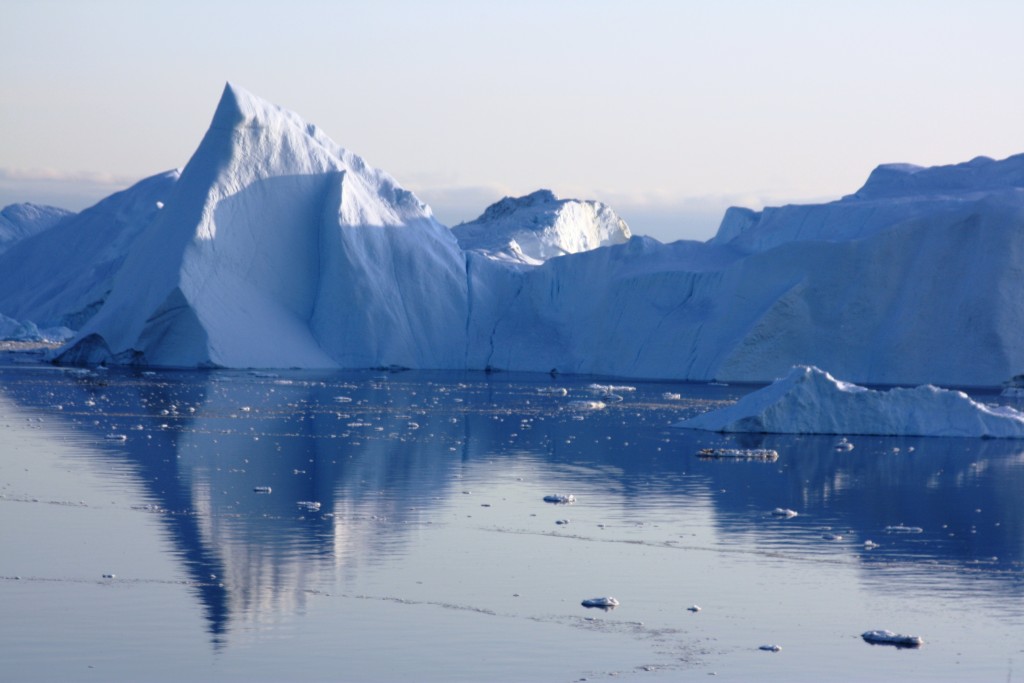
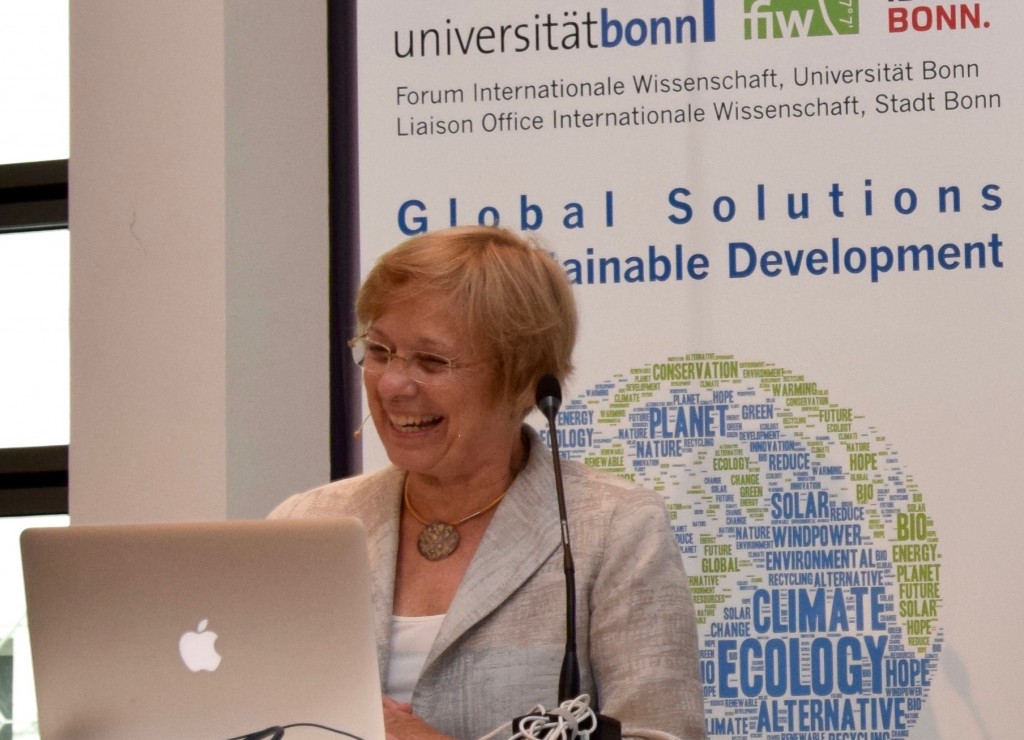
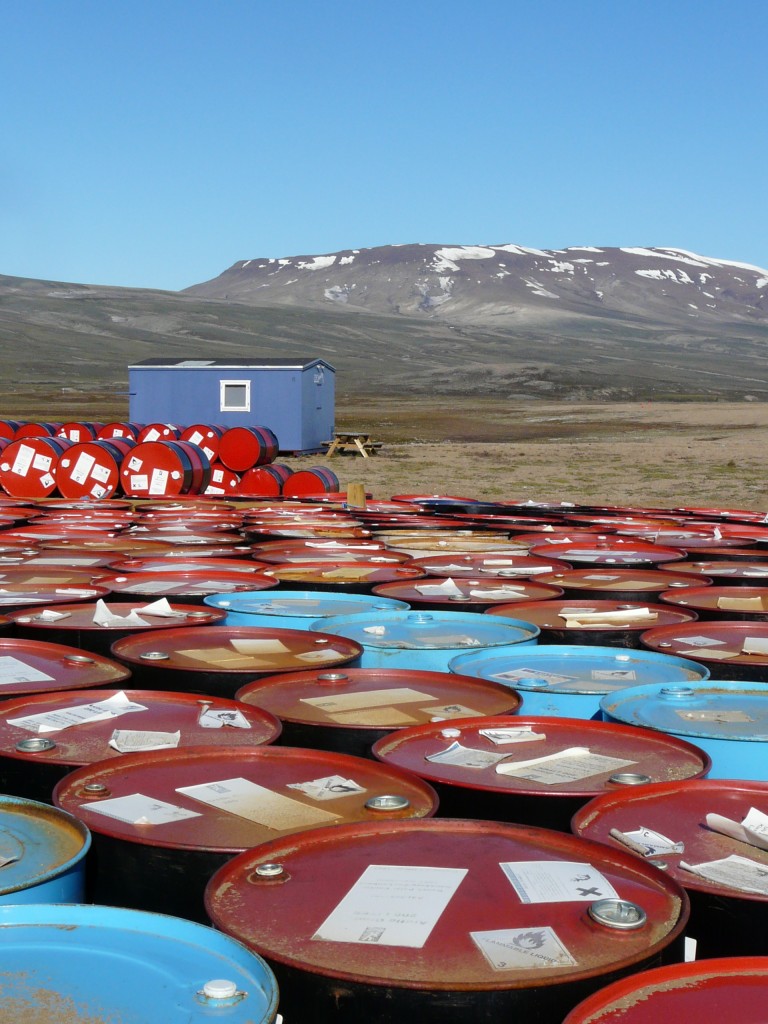
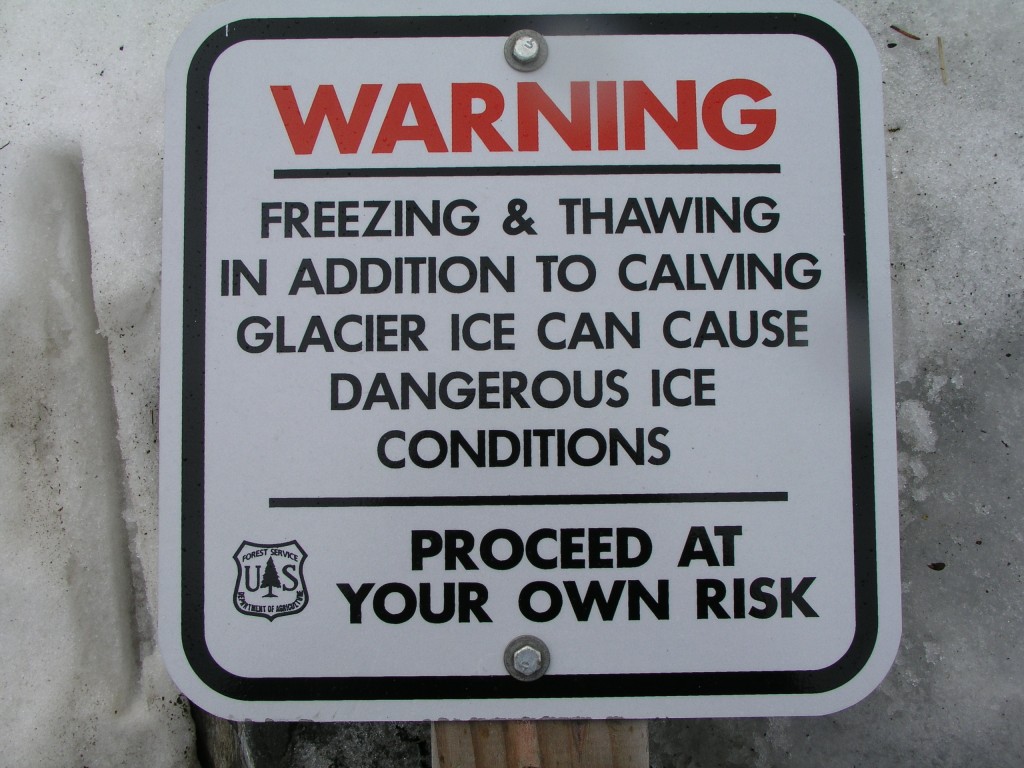
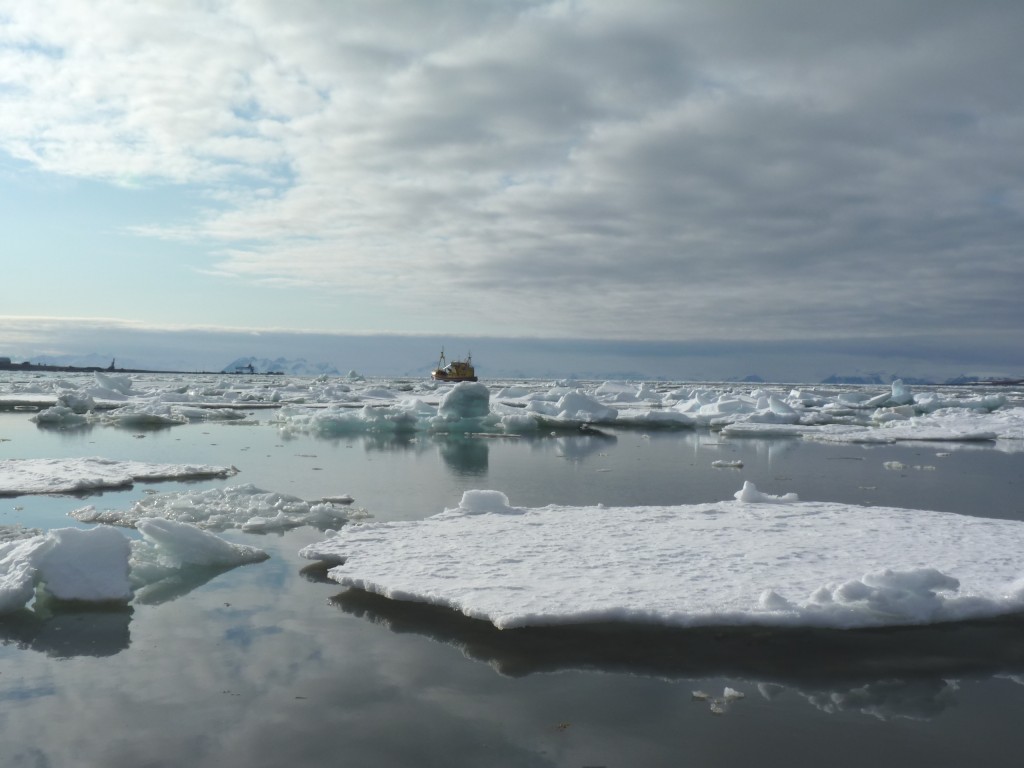












Feedback